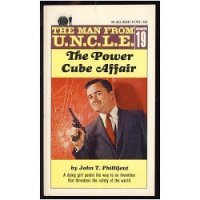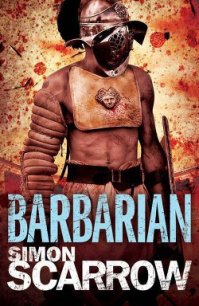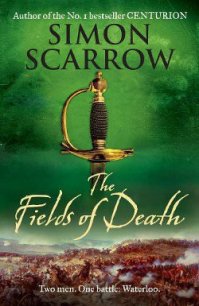Power of the Sword - Smith Wilbur (читать книги онлайн регистрации .TXT) 📗
Centaine, he cried weakly, and he wanted to tell her, Your diamonds are in the cleft on the summit of the hill. But when she turned back he bit down on the words and said only, Goodbye, Centaine.
It is finished at last. The Okavango is one of Africa's most beautiful rivers. It rises in the highlands of the Angolan plateau above 4,000 feet and flows south and east, a wide deep torrent of green water that it seems must reach the ocean, so swift and determined is its flow. However, it is a landlocked river, debauching first into the mis-named Okavango Swamps, a vast area of lucid lagoons and papyrus banks, studded with islets on which graceful ivory nut palms and great wild figs stand tall. Beyond that the river emerges again but shrivelled and weakened as it enters the desolation of the Kalahari Desert and disappears for ever beneath those eternal sands.
This section of the river that Centaine and Blaine set out upon was that above the swamps where the river was at its grandest. Their craft was a native mukoro, a dugout canoe fashioned from a single tree-trunk over twenty feet long, rounded but not perfectly straight.
The owl and the pussy cat put to sea in a beautiful banana-shaped boat, quoth Blaine, and Centaine laughed a little apprehensively until she saw how masterfully their paddlers handled the mis-shapen craft.
They were two amiable coal-black giants of the river tribe.
They had the balance of gymnasts and their bodies were forged and hardened to Grecian perfection by a lifetime of wielding their paddles and their long punting poles. They stood at the stern and bows, singing their melodious work chant and trimming their narrow unstable craft with a relaxed, almost instinctive ease.
Amidships Blaine and Centaine lolled on cushions of raw-hide stuffed with the fluffy heads of the papyrus reeds. The narrow beam forced them to sit in tandem, with Blaine in the lead, his Lee Enfield rifle across his lap ready to discourage the close approach of any of the numerous hippopotami which infested the river. The most dangerous animal in Africa by far, he told Centaine.
What about lions and elephants and poisonous snakes? she challenged.
The old hippo gets two humans for every one killed by all the other species put together. This was Centaine's first venture into these parts. She was a creature of the desert, unacquainted with the river or the swamps, unfamiliar with the boundless life they supported.
Blaine, on the other hand, knew the river well. He had first been ordered here when serving with General Smuts' expeditionary force in 1915 and had since returned often to hunt and study the wildlife of the region. He seemed to recognize every animal and bird and plant, and he had a hundred stories, both true and apocryphal, with which to amuse her.
The mood of the river changed constantly; at places it narrowed and raced through rock-lined gaps and the long canoe flew like a lance upon it. The paddlers directed it past outcrops of fanged rock upon which the current humped up and split, and with delicate touches of the paddles took them through the creaming whirlpools beyond and into the next flying stretch where the surface was moulded like green Venetian glass into standing waves by its own speed and momentum. Centaine whooped breathlessly, half in terror and half in exhilaration, like a child on a roller coaster. Then they emerged onto broad shallow stretches, the flow broken by islands and sandbanks and bordered by wide flood plains on which grazed herds of wild buffalo, massive indolent seeming beasts, black as hell and crusted with dried mud, great bossed horns drooping mournfully over their trumpet-shaped ears, standing belly-deep in the flood plains, lifting their black drooling muzzles in comical curiosity to watch them pass.
Oh Blaine! What are those? I've never seen them before. Lechwe. This is as far south as you will find them. There were vast herds of these robust water antelope with coarse wiry red coats, the rams standing as tall as a man's chest and carrying long gracefully recurved horns. The hornless ewes were fluffy as children's toys. So dense were the herds that when they fled from the human presence they churned the water until it sounded like the thunderous passage of a steam locomotive heard at a distance.
On nearly every tall tree along the river's banks were posted pairs of fish eagles, their white heads shining in the Sunlight. They threw back their heads, belting out their throats to chant their weird yelping call as the mukoro glided past.
On the white sandbanks the long saurian shapes of the crocodiles were silhouetted, ugly and evil as they lifted themselves on their stubby deformed legs and waddled swiftly to the water's edge, then slipping away below the surface, only the twin knobs of their scaly eyebrows still showing.
In the shallows clusters of smooth rounded boulders, dark grey edged with baby pink, caught Centaine's attention, but she did not recognize them until Blaine warned: Watch them! and the paddlers sheered off as one of the huge boulders moved, raising a head the size of a beer keg, gaping red, the mighty jaws lined with tusks of yellow ivory, and it bellowed at them with the deep sardonical laughter of a demented god.
Blaine shifted the rifle slightly. Don't be taken in by that jovial haw haw haw, he isn't really amused, he told Centaine as he worked the bolt and pushed a cartridge into the breech.
As he spoke the bull hippo charged at them through the shallows, breaking the water into white foam with his elephantine bounds, blaring his hoarse menacing laughter, his jaws gaping, clashing the long curved yellow ivories whose razor edges could scythe the thick fibrous papyrus stems, or crush in the frail sides of a mukoro, or cut a swimming man into two pieces with equal ease.
p The mukoro drove forward under the long powerful thrusts of the two oarsmen, but the hippopotamus gained on them rapidly and Blaine sprang to his feet, balancing in the unstable craft. He lifted the rifle to his shoulder and fired so rapidly that the reports blended together, and Centaine flinched at the whiplash of gunfire over her head and looked back, expecting to see the bullets strike on the great fleshy grey head and blood spurt from between those glassy pink-shot little eyes. But Blaine had aimed inches over the beast's forehead. The bristly ears twitched and fluttered like sunbirds wings to the shock of passing shot, and the bull broke his charge and came up short, just his head showing above the surface, blinking rapidly with comical astonishment.
The mukoro pulled swiftly away, and the bull submerged in a huge swirl of green water as if to cover his embarrassment at his own ineffectual performance.
Are you all right, Centaine? Blaine lowered the rifle.
That was a little frosty. She tried to keep her voice level with only partial success.
Not as bad as it seemed, sound and fury, not too much of the deadly intent. He smiled at her.
I'm glad you didn't kill him. Not much point in turning the old boy into four tons of rotting carrion and making twenty widows of his fat wives. Is that why he chased us, protecting his females? 'Probably, but you can never tell with wild animals. Perhaps one of his cows is calving, or he has unpleasant memories of human hunters, or perhaps he just felt plain bolshy today., His coolness in crisis had impressed her almost as much as his humanity in sparing the threatening beast.
Only school-girls worship their heroes, she reminded herself firmly as the canoe sped onwards, and then found herself studying the breadth of Blaine's shoulders and the way he held his head upon them. His dark hair was cut short down the back of his neck, and his neck was strong but not bulled, pleasingly proportioned and smooth, only his ears were too large, and the tips were pink where the sunlight seemed to shine through them. She felt an almost irresistible urge to lean forward and kiss the soft skin just behind where they jutted out, but she controlled herself with a giggle.




